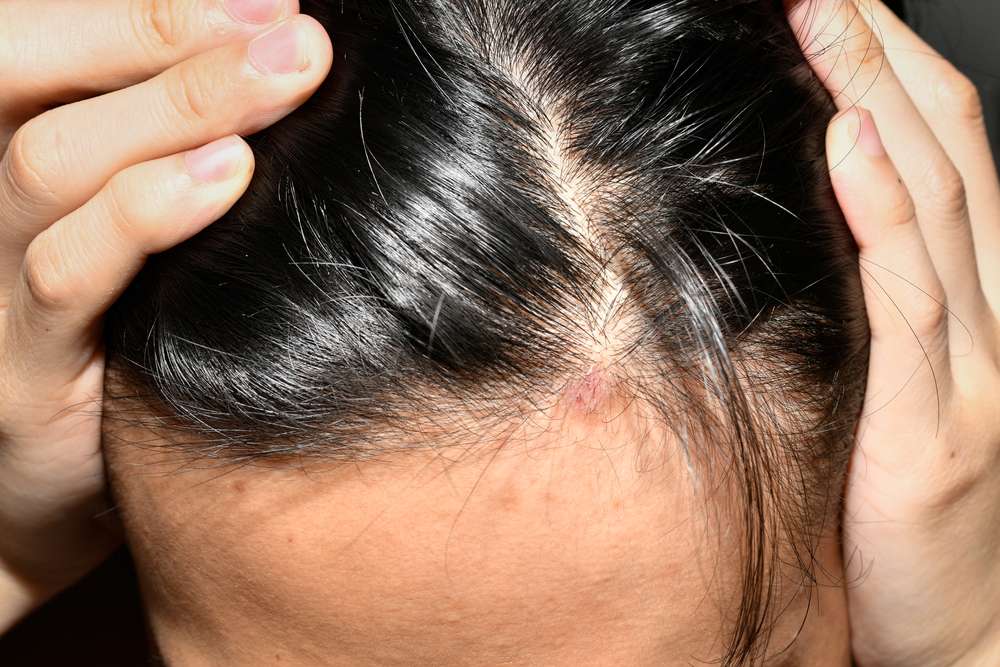The Hidden World of Scalp Microbiome: A Hair Health Revolution
The scalp microbiome, a complex ecosystem of microorganisms living on our heads, has long been overlooked in the realm of hair care. This intricate balance of bacteria, fungi, and other microscopic life forms plays a crucial role in maintaining healthy hair and preventing scalp conditions. Recent scientific advancements have shed light on the importance of this hidden world, revealing its potential to revolutionize how we approach hair care and treatment. As researchers delve deeper into the scalp microbiome, they're uncovering fascinating connections between these tiny organisms and common hair issues like dandruff, hair loss, and even the rate of hair growth.

Initial studies focused on identifying the various species present on the scalp. Researchers discovered a diverse array of bacteria, including Propionibacterium, Staphylococcus, and Corynebacterium, as well as fungi like Malassezia. These findings laid the groundwork for further investigation into how these microorganisms interact with each other and influence scalp and hair health.
The Delicate Balance of Scalp Ecology
As research progressed, it became clear that the scalp microbiome is not just a random assortment of microorganisms, but a finely tuned ecosystem. Each species plays a specific role in maintaining the scalp’s health and function. For example, certain bacteria help regulate sebum production, while others contribute to the skin’s natural defense against pathogens.
This delicate balance can be easily disrupted by various factors, including diet, stress, environmental pollutants, and even the hair care products we use. When the balance is thrown off, it can lead to a range of scalp and hair issues. For instance, an overgrowth of Malassezia fungi has been linked to dandruff and seborrheic dermatitis, while a decrease in beneficial bacteria may contribute to hair thinning and loss.
The Microbiome’s Role in Common Hair Problems
One of the most exciting aspects of scalp microbiome research is its potential to explain and address common hair problems that have long puzzled both consumers and professionals. Dandruff, for example, has been a persistent issue for many people, with traditional treatments often providing only temporary relief. Recent studies have shown that dandruff is closely linked to an imbalance in the scalp microbiome, particularly an overgrowth of Malassezia yeasts.
Similarly, research has revealed connections between the scalp microbiome and other conditions like psoriasis, eczema, and even male pattern baldness. In the case of hair loss, scientists have found that certain bacteria on the scalp can influence the hair growth cycle, potentially opening up new avenues for treatment.
Harnessing the Power of Probiotics for Hair Care
As our understanding of the scalp microbiome grows, so does the potential for developing new, more effective hair care products. One of the most promising areas of research is the use of probiotics in hair care. Just as probiotic supplements can help balance the gut microbiome, topical probiotics may be able to restore and maintain a healthy scalp ecosystem.
Several companies have already begun incorporating probiotic ingredients into their shampoos, conditioners, and scalp treatments. These products aim to introduce beneficial bacteria to the scalp, helping to crowd out harmful microorganisms and restore balance. While the efficacy of these products is still being studied, early results are promising, with some users reporting improvements in scalp health and hair quality.
The Future of Personalized Hair Care
Perhaps the most exciting potential of scalp microbiome research lies in the realm of personalized hair care. As we learn more about the unique composition of each individual’s scalp microbiome, it becomes possible to tailor treatments and products to specific needs. This could lead to a future where hair care routines are based not just on hair type or scalp condition, but on the specific microbial makeup of each person’s scalp.
Some companies are already exploring this concept, offering scalp microbiome testing services that provide personalized product recommendations based on the results. While these services are still in their infancy, they represent a significant step towards truly individualized hair care.
Challenges and Controversies in Scalp Microbiome Research
Despite the exciting potential of scalp microbiome research, the field is not without its challenges and controversies. One of the main difficulties lies in the complexity of the microbiome itself. With hundreds of different species interacting in countless ways, it can be challenging to draw definitive conclusions about cause and effect.
There’s also debate within the scientific community about the best methods for studying the scalp microbiome. Traditional culturing techniques may not capture the full diversity of microorganisms present, while newer DNA sequencing methods can be expensive and time-consuming.
Additionally, some researchers caution against oversimplifying the role of the microbiome in hair and scalp health. While it’s clear that these microorganisms play a crucial role, they are just one piece of a complex puzzle that includes genetics, diet, environment, and lifestyle factors.
The Impact on the Hair Care Industry
The growing understanding of the scalp microbiome is already beginning to reshape the hair care industry. Traditional approaches focused on cleansing and treating visible symptoms are giving way to a more holistic view that considers the scalp’s ecosystem as a whole.
This shift is evident in the increasing number of products marketed as “microbiome-friendly” or “probiotic-enhanced.” Major hair care brands are investing heavily in microbiome research, recognizing its potential to drive innovation and create more effective products.
However, this new frontier also presents challenges for the industry. Developing products that effectively influence the scalp microbiome while meeting safety and regulatory standards is no small feat. There’s also the challenge of educating consumers about the importance of the scalp microbiome, a concept that may be unfamiliar to many.
A New Era in Hair Health
The exploration of the scalp microbiome represents a significant leap forward in our understanding of hair and scalp health. As research continues to unveil the intricate relationships between microorganisms and hair health, we’re likely to see a transformation in how we approach hair care.
From personalized treatments based on individual microbiome profiles to probiotic-enhanced products that nurture beneficial bacteria, the future of hair care looks increasingly microscopic. While there are still many questions to be answered and challenges to overcome, one thing is clear: the hidden world of the scalp microbiome is set to play a starring role in the next revolution in hair health and beauty.




